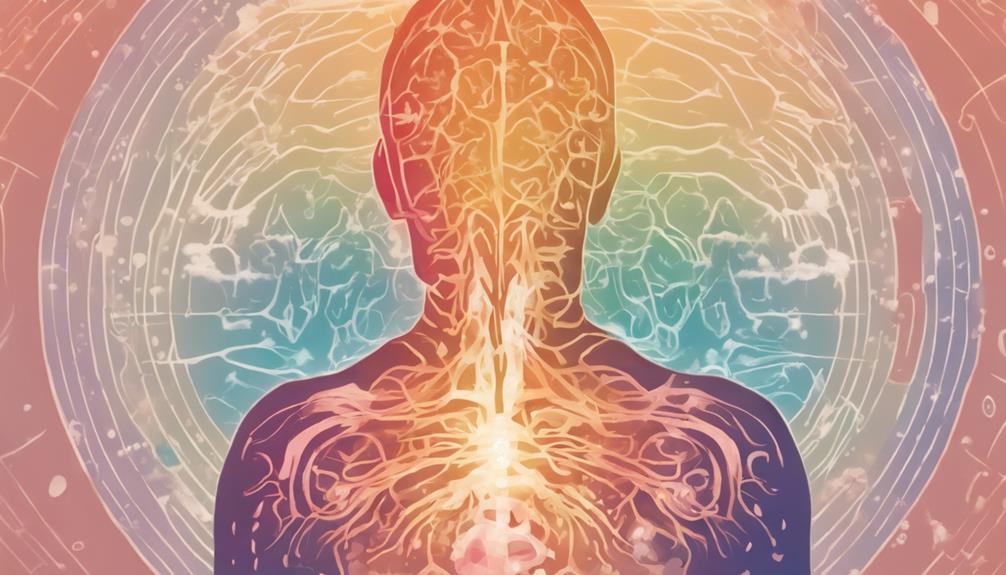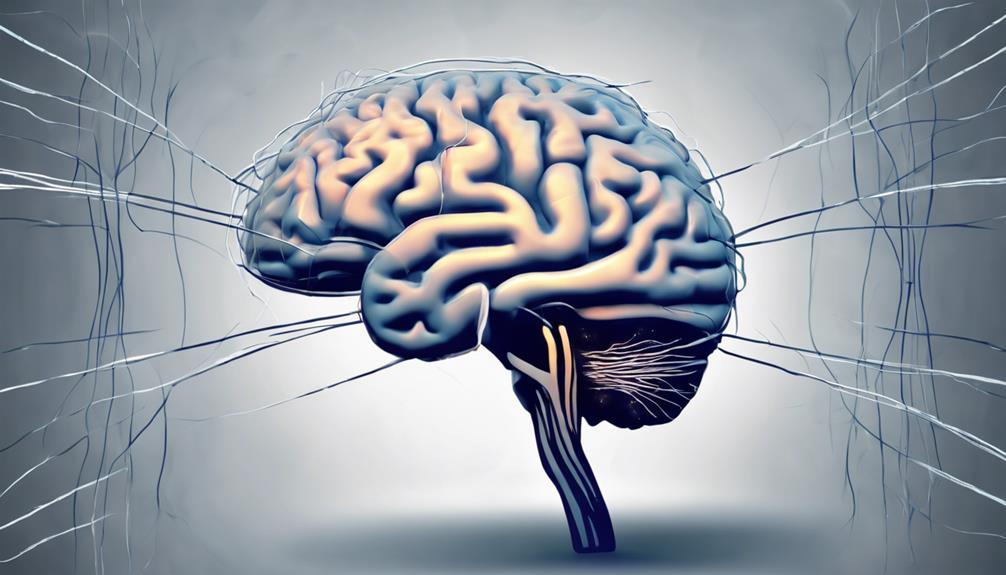Harness the power of your mind to manage chronic pain effectively through health hypnosis. This approach offers relief by tapping into altered states of consciousness, reducing pain intensity, and promoting relaxation. Health hypnosis provides a holistic method for addressing persistent discomfort, utilizing guided imagery, suggestions, and deep relaxation techniques. Enhance your quality of life and regain control over your pain by exploring this promising therapeutic option.
Understanding Chronic Pain

Chronic pain is a complex condition characterized by persistent discomfort that lasts beyond the expected time for healing. Understanding chronic pain causes and pain perception is crucial in effectively managing this condition. Chronic pain can be triggered by various factors such as underlying medical conditions, injuries, or nerve damage. Additionally, psychological factors like stress, anxiety, and depression can also contribute to the perception and experience of pain.
Pain perception involves a complex interplay of biological, psychological, and social factors. The brain processes pain signals from the body and can amplify or diminish the intensity of the pain experience. Individuals with chronic pain may have alterations in their pain processing pathways, leading to increased sensitivity to pain stimuli. This heightened pain perception can result in a decreased quality of life, affecting daily activities and overall well-being.
Benefits of Health Hypnosis
Understanding the potential benefits of health hypnosis in managing chronic pain can offer valuable insights into complementary approaches for improving pain perception and overall well-being.
Health hypnosis, when used in the context of chronic pain management, has shown promising results in providing relief and enhancing the quality of life for individuals experiencing persistent pain. One of the key benefits of health hypnosis is its ability to help individuals achieve pain relief through altered states of consciousness, where suggestions for relaxation, pain reduction, and coping mechanisms are more readily accepted by the subconscious mind.
Research has indicated that hypnosis benefits individuals by reducing the perceived intensity of pain, promoting relaxation, and fostering a sense of control over their pain experience. By tapping into the power of the mind, health hypnosis can complement traditional pain management strategies, offering a holistic approach to addressing chronic pain.
Through guided imagery, suggestions, and deep relaxation techniques, individuals can experience relief from pain and improve their overall well-being with the help of health hypnosis.
Pain Management Techniques

Exploring effective pain management techniques is crucial in enhancing the quality of life for individuals dealing with persistent pain conditions. Pain perception varies among individuals, making it essential to employ a range of coping strategies tailored to each person's needs.
One effective technique is cognitive-behavioral therapy (CBT), which helps individuals modify negative thought patterns and develop healthier coping mechanisms for pain. CBT has shown promising results in reducing pain intensity and improving overall functioning.
Another valuable approach is mindfulness meditation, which focuses on being present in the moment without judgment. By cultivating mindfulness, individuals can learn to observe their pain without becoming overwhelmed by it, thus reducing the emotional impact of chronic pain.
Additionally, relaxation techniques such as deep breathing exercises and progressive muscle relaxation can help alleviate muscle tension and promote a sense of calm in individuals experiencing chronic pain.
Incorporating a combination of these pain management techniques can empower individuals to better manage their pain, improve their quality of life, and foster a sense of control over their chronic pain condition.
Mind-Body Connection
The interconnection between the mind and body plays a significant role in managing chronic pain and overall well-being. Chronic pain is not just a physical sensation but is also influenced by psychological and emotional factors.
Stress reduction techniques such as mindfulness meditation, deep breathing exercises, and guided imagery can help alleviate both physical discomfort and emotional distress associated with chronic pain. By reducing stress levels, the body can enter a state of relaxation, promoting healing and reducing the perception of pain.
Furthermore, emotional healing is crucial in addressing chronic pain. Unresolved emotional issues, such as anxiety, depression, or past traumas, can exacerbate pain symptoms. Through practices like cognitive-behavioral therapy, journaling, or support groups, individuals can work through these emotional challenges, leading to improved pain management outcomes.
The mind-body connection underscores the importance of addressing not only the physical aspects of pain but also the emotional and psychological factors that contribute to its intensity and persistence.
Overcoming Pain Triggers

Identifying and managing triggers that exacerbate chronic pain is essential for improving pain management outcomes and enhancing overall well-being. Pain triggers can vary widely among individuals and may include physical activities, specific movements, stress, weather changes, or even certain emotions. Understanding these triggers is crucial in developing effective pain coping strategies.
One key aspect of overcoming pain triggers is trigger identification. Patients are encouraged to keep a pain journal to track activities, emotions, and environmental factors that coincide with increased pain levels. By recognizing patterns, individuals can start to pinpoint specific triggers and work towards minimizing their impact.
Emotional responses play a significant role in how pain triggers affect an individual. Stress, anxiety, and depression can heighten pain perception and make it more challenging to manage chronic pain effectively. Incorporating relaxation techniques, mindfulness practices, and cognitive-behavioral therapy can help individuals navigate these emotional responses and build resilience against pain triggers.
Self-Hypnosis for Pain Relief
Utilizing self-hypnosis as a complementary approach for managing chronic pain has shown promising results in various clinical studies and patient experiences. Self-hypnosis involves inducing a deeply relaxed state where the mind is open to suggestions that can help alleviate pain perception.
Through techniques such as guided imagery, individuals can visualize soothing scenes or sensations that divert attention away from pain signals, promoting a sense of calmness and well-being.
Guided imagery is a powerful tool within self-hypnosis that allows individuals to create vivid mental images that evoke positive emotions and relaxation responses. By picturing themselves in peaceful settings or envisioning the pain dissipating, patients can effectively reduce their perception of pain intensity and improve their overall quality of life.
Incorporating relaxation techniques such as deep breathing exercises and progressive muscle relaxation further enhances the efficacy of self-hypnosis for pain relief. These practices help to release physical tension, promote circulation, and foster a state of tranquility that can counteract the stress response often associated with chronic pain conditions.
Frequently Asked Questions
Can Health Hypnosis Help With All Types of Chronic Pain?
Health hypnosis, as an alternative therapy, can provide pain relief for various types of chronic pain through the mind-body connection. Its holistic approach addresses pain perception, offering potential benefits in managing chronic pain.
Are There Any Potential Side Effects of Using Health Hypnosis?
When considering health hypnosis, it's crucial to address potential risks and benefits. While side effects are minimal, misconceptions exist. Success rates vary, with proper guidance and expertise playing key roles in optimizing outcomes and minimizing any risks associated with the practice.
How Long Does It Typically Take to See Results From Health Hypnosis?
The timeframe for results in health hypnosis varies among individuals, with some experiencing improvement within a few sessions while others may require more time. Success rates are influenced by patient expectations and commitment, with long-term benefits often observed.
Is Health Hypnosis a Suitable Option for Children With Chronic Pain?
In child psychology, considering alternative treatments like health hypnosis for chronic pain in children requires careful evaluation. Evidence suggests it can be beneficial, but must be tailored to the child's needs and conducted under professional supervision.
Can Health Hypnosis Be Used Alongside Other Pain Management Therapies?
Combining health hypnosis with alternative therapies can enhance pain relief by providing a holistic approach to managing chronic pain. By utilizing a combination of treatments, individuals can experience a more comprehensive and effective pain management strategy.
Conclusion
In conclusion, health hypnosis offers a promising approach to managing chronic pain by tapping into the mind-body connection and providing effective pain relief techniques.
Through self-hypnosis and understanding pain triggers, individuals can gain control over their pain and improve their quality of life.
The benefits of health hypnosis in pain management are supported by research and can be a valuable tool in the comprehensive treatment of chronic pain conditions.




































